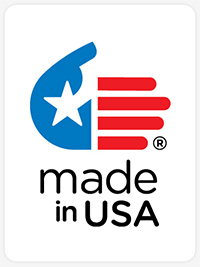 A company that provides a “Made in USA” certification seal to marketers has agreed to settle Federal Trade Commission charges that it deceived consumers by allowing companies to use the seal without either independently verifying that those companies’ products were made in the United States, or disclosing that the companies had certified themselves.
A company that provides a “Made in USA” certification seal to marketers has agreed to settle Federal Trade Commission charges that it deceived consumers by allowing companies to use the seal without either independently verifying that those companies’ products were made in the United States, or disclosing that the companies had certified themselves.
A proposed settlement with Made in USA Brand, LLC, requires the company to stop its deceptive claims. The FTC’s Enforcement Policy Statement on U.S.-Origin Claims provides that products advertised or labeled as “Made in the USA” must be “all or virtually all” made in the United States. Made in the USA Brand, LLC charges companies to use its certification mark and to be listed in a database of “certified” companies that comply with the FTC’s standard.
The Columbus, Ohio-based Made in the USA Brand, LLC charged $250 to $2,000 for a one-year license to use the certification mark, according to the FTC. But the company did not independently evaluate the products before certifying them, and had no procedures to determine whether marketers complied with the FTC’s Made in USA standard, according to the complaint. In fact, the FTC charged that Made in the USA Brand has never rejected a company’s application to use its Certification Mark or terminated a company’s use of the mark. Instead, Made in the USA Brand, LLC awarded licenses to any company that self-certified that it was complying with the FTC’s standard.
“Seals can be very helpul when consumers purchase products based on claims that are difficult to verify like the Made-in-the-USA claim,” said Jessica Rich, Director of the FTC’s Bureau of Consumer Protection. “When marketers provide seals without any verification, or without telling consumers the seal is unverified, consumers are deceived and the value of all marketers’ seals is diminished. This case makes it clear that the FTC will not let that happen.”
In a promotional flyer, Made in the USA Brand, LLC claimed:
“The Made in USA Brand Certification Mark provides a standard symbol for Made in USA product identification . . . When printed on labels by accredited manufacturers, consumers are able to identify at a glance which products are
made in the USA…The Certification Mark is available to be downloaded by U.S. businesses that meet the accreditation standards based on the Federal Trade Commission’s regulations for complying with Made in USA origin claims.”
made in the USA…The Certification Mark is available to be downloaded by U.S. businesses that meet the accreditation standards based on the Federal Trade Commission’s regulations for complying with Made in USA origin claims.”
According to the complaint, Made in the USA Brand, LLC:
- falsely advertised that it independently and objectively evaluated whether certified products met its accreditation standard.
- made false or unsupported claims that companies listed in its database as certified marketers were in fact selling products that complied with the FTC’s Made in USA standard.
- provided the companies it licensed with the means to deceive consumers into believing that the companies were marketing products that were made in the United States.
- Under the proposed administrative order, respondent Made in the USA Brand, LLC, is prohibited from:
- claiming that any products or companies meet its certification standard unless it either conducts an independent and objective evaluation, or discloses on its logo and all its promotional materials that companies and products are self-certified.
- claiming that any product is made in the USA or in any other country unless the claim is true and supported by competent and reliable evidence, or if the certification mark is used unless it discloses that companies and products are self-certified.
- providing the companies it certifies with the means to deceive consumers.
The Commission vote to accept the consent agreement package containing the proposed consent order for public comment was 5-0.
The FTC will publish a description of the consent agreement in the Federal Register shortly. The agreement will be subject to public comment for 30 days, beginning today and continuing through August 22, 2014, after which the Commission will decide whether to make the proposed consent order final. Interested parties can submit written comments electronically or in paper form by following the instructions in “Supplementary Information” section of the Federal Register notice. Comments should be submitted electronically using an online form which can be ound at https://ftcpublic.commentworks.com/ftc/usabrandconsent.














